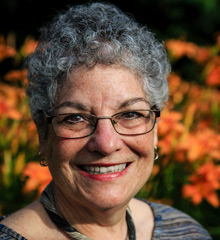Theological Themes in Ruth
Revised by author, 9/23
BlessingBlessing is the asking for or the giving of God’s favor. Isaac was tricked into blessing Jacob instead of his firstborn Esau. At the Last Supper Jesus offered a blessing over bread and wine. To be blessed is to be favored by God. More
Blessings occur 7 times in the Book of RuthThe great-grandmother of David. More, from NaomiThe mother-in-law of Ruth. More blessing both her daughters-in-law (1:8-9) and an unknown man who took notice who is BoazHusband of Ruth and great-grandfather of David. More (2:19, 20), to Boaz’s casual blessing of his workers (2:4) and deeper blessing of Ruth (3:10), to the people at the gateGates are openings in walls or fences for entrance and departure. In the Bible (as in Ruth and the prophets) the city gate was a commercial center where business and social transactions took place. In Amos the gate is the location of the law court… More blessing Ruth (4:11)and ultimately to the women blessing the Lord for the birth of the child (4:14). These blessings, more than the direct actions of God, point out how God works in the lives of the people and in history.
Commitment and loyalty
Unlike in the previous period in Judges, in which everyone “did what was right in their own eyes” (Judges 21:25), the 3 major characters of the Book of Ruth act out of loyalty, love, and a deep sense of righteousness. Such values and actions make possible the eventual birth of DavidSecond king of Israel, David united the northern and southern kingdoms. More, thus ensuring the survival of the nations through their individual acts of kindness.
Family ties
The Book of Ruth helps to redefine family, centering not on blood relationships but rather on acts of loyalty and love. Identifying who was family was central to the postexilic period of EzraScribe who helped establish Jewish practices in Jerusalem after the exile. More and NehemiahThe governor of Jerusalem who rebuilt the city walls after the exile. More. This was a time of reentry; many of those who had lived for a generation in exile in Babylon returned home to reclaim their family property. The ones that returned home were the upper classes who had been exiled. But the land was now occupied by others — the poorer folks who had never been taken captive and foreigners who had been lifted from their own land and forcibly settled in JudahJudah was the name of Jacob’s fourth son and one of the 12 tribes. More. The returnees were facing big questions: Whose property is it? Who is included in God’s promises to the people? Who is in the tribe? Who is part of the family? Strangers were frightening, so there was a tendency to shut them out.
The Book of Ruth, which begins with the death of Naomi’s blood family, shows that what constitutes family is not necessarily evident. The plot hinges first on Naomi, then on Boaz, and finally on the whole community, recognizing Ruth the Moabite as crucial to the family. The book ends with the birth of a “mixed blood” child becoming the “next-of-kin,” ushering in the continued family of David.
How God acts
God does not act or speak directly in the Book of Ruth, with the two exceptions of giving the people food (Ruth 1:6) and of making Ruth conceive (Ruth 4:13). Rather God’s hand is discerned in such accidental occurrences as Ruth’s happening on the field of Boaz, in the righteousA righteous person is one who is ethical and faithful to God’s covenant. Righteousness in the Old Testament is an attitude of God; in the New Testament it is a gift of God through grace. In the New Testament righteousness is a relationship with God… More actions of the people, and in the many blessings bestowed on and by the various characters of the book. And God is made present in the most unlikely of relationships — between an old, broken woman and a widowA widow is a woman whose spouse has died, often plunging her into poverty and putting her in a vulnerable position in society. Jesus, in his concern for the poor, regards widows with compassion and concern. More from a dangerous land.
The role of the foreigner
Throughout Israel’s history the foreigner plays a double role. One is as an enemy, but righteous foreigners like Ruth the Moabite also regularly arise and play significant roles in Israel’s history. Characters such as Ruth remind the people that foreigners not only deserve care, but also that these foreigners themselves work toward God’s promised future.
The spirit of the law
Understanding the role of the law is crucial to the Book of Ruth. It is far less straightforward than readers might imagine. Different laws stand in contrast with each other.
On the one hand, one finds laws which warn against Moabites and admitting them into the assembly (Deuteronomy 23:3-4, 6) and laws which forbid marrying foreign women (Ezra 10:1-12; Nehemiah 13:23-27).
On the other hand, one find laws which encourage taking care of the poor, the widow, and the alien (in verses too numerous to list), laws which instruct harvesters to leave gleanings for the poor, the orphan, the widow, and the alien (Leviticus 19:9; 23:22; Deuteronomy 24:21-22), laws that encourage keeping land in the family (Leviticus 25: 24), and laws about acting as redeemerA redeemer is someone who literally buys back, wins back, or frees from distress. The Hebrew term for redeemer (go’el) means to deliver or rescue. It may be a person or God who performs the act of redemption. More/ next-of-kin to the widow of a dead relative– the law of levirate marriage (Deuteronomy 25:5-10).
The Book of Ruth highlights laws of inclusion and care over exclusion and fear. One might say that the law leads directly to and presents itself as gospel.

